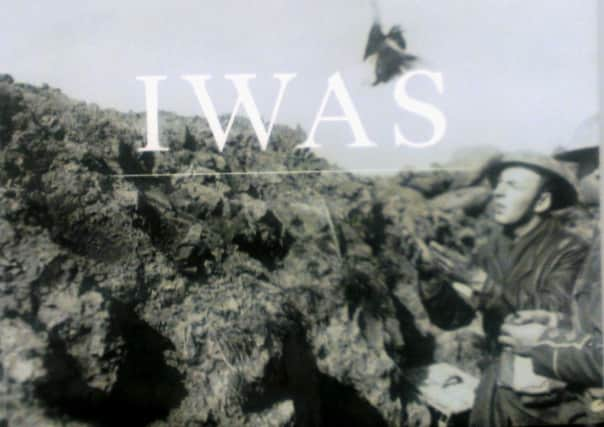WAR DIARY: Somme soldier who hid from parents after signing up


On the 16th of May 1915, I left my home to go to my work in Inver Factory and on Glynn Road I met Alex Wallace. We started to talk about the war and we decided there and then to join the army.
We both were barely turned 18 years of age, so we went down to Mr Higginson’s in Dunluce Street, as he was recruiting at that time, and we received papers from him for the doctor. We then reported to the doctor and were medically examined. I had fears at that time I would not pass, but I got through all right. I can assure you I wasn’t much to look at, being about 108lbs. in weight, ‘but likely to develop’. I remember that was written on my paper. We were then sworn in by Mr J. Barton, J.P.
Advertisement
Hide AdAdvertisement
Hide AdDuring this time we were very afraid of being seen by our parents as it would have made a very awkward situation, so we had to sneak about the station until train time. To our great relief it came at last and off we sailed to what was, to me, a very great adventure. I remember when the train was passing through Magheramorne Station, we crept in below the seats as we were afraid Wallace’s father might see us.


We arrived in Belfast about two o’clock and went to the Old Town Hall and received our army kit and uniform, also a railway pass to Newtownards.
About seven o’clock that evening we passed in through the camp gate of the 12th Service Battalion, Royal Irish Rifles. Thus Wallace and I were full blown Privates (Army slang word) in His Majesty’s Forces.
Reveille was at six o’clock. We then washed ourselves and lined up on the parade ground at half-past-six and did physical drill until half-past-seven. It was no joke to have a drill instructor trying to make you put yourself into a knot. Before the hour was up we would have needed someone pumping air into us.
Advertisement
Hide AdAdvertisement
Hide AdSome chaps could not do the movements smartly enough and then the wrath of the sergeant was upon them. Some of these instructors had a dictionary of words all their own. They had some funny ways of expressing themselves such as “Come on there, Spanish Onion, pick them up on the left.” This meant for a man to lift his feet higher marking time.


If some fellow was not marching properly you would hear the sergeant bawl: “Come on you with the big feet, you’re like a bloomin’ cab horse.”
It was very trying for the sergeants when a man was slow at grasping something, but when they kept shouting at him it just made him 10 times worse.
After these physical jerks, as we called them, we had breakfast, which consisted of bread, butter and sausages, sometimes fish and on rare occasions, boiled eggs.
Advertisement
Hide AdAdvertisement
Hide AdBreakfast over, we fell in with our rifles and equipment on the parade ground at nine o’clock. Before ever a move was made, our rifles were inspected by the officer and they had to be thoroughly clean, also our equipment. We also had to be shaved. Of course I escaped that as I had no hair on my face to shave.
Notes:
Mr Higginson was a shoe and boot maker. Because of the sheer number of men signing up each week, local dignitaries like Mr Higginson and magistrates acted on behalf of Lord Kitchener and the military to recruit, organise, drill and look after soldiers. Robert would have signed up to receive 1 shilling a day as a private.
So why did Robert sign up? At this time Larne would have been doing very well economically, with jobs from the Aluminium Works which opened in 1896 and the Inver Factory which opened in May, 1917 on the Glynn Road. 1913 was also a boom tourist year with 2500 people having stayed in the Latharna Hotel, so employment opportunities would have been plentiful. The fact that Robert already had a good job as a tenter in the linen factory would have meant that the promise of a steady wage wouldn’t have been his motivation to sign up. It is more likely that peer pressure, propaganda and his sense of duty would have driven his decision. (Source: McKillop, F. The History of Larne and East Antrim, Ulster Journals, 2000).